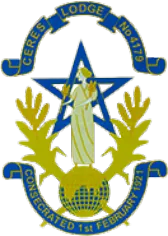W Bro Mark Smith PSGD is Assistant Provincial Grand Master in Essex and a member of Maguncor Lodge, 3806 in London. He told a very moving and insightful story at the Metropolitan Grand Lodge AGM on 6th March 2024.

Here’s what he said: “There was a doctor from the First World War. He joined the Royal Army Medical Corps in 1914, and he was attached to the 10th Battalion the King’s (Liverpool) Regiment.
In 1916, he was the medical officer for the Battalion. In September of that year, when the Battalion attacked a village called Guilimont, on the Somme, they suffered heavy losses inflicted by machine gun fire.
The Doctor waited until it got dark and then that night he went over the top on his own into no-man’s land.
It is recorded that at times he got to within 20 yards of the German front line, all the time, under fire, he was, that night, wounded nine times by shrapnel. And that night, he rescued 21 men on his own from the shell holes.
Then, on the 31st July 1917, still as the medical officer for the 10th Battalion, he was waiting for his Battalion to attack on the first day of the third battle of Ypres, which is better known to people as the battle of Passchendaele. And while he was waiting for the attack to start, a shell exploded in his dressing station, which was, as always situated right in the fron tline. This explosion wounded him very badly.
Part of his face was blown off. His skull was fractured, and he had two holes blown in his body. And even though so badly wounded he refused to go to the dressing station. He said: “I will stay because I am the boys’ doctor.”
So a very selfless act meant that he stayed, wounded as he was, working in that dressing station for the next three days and three nights, even at one point going out into no-man’s land to perform an operation on someone under shellfire, so that the stretcher bearers could bring him in.
Eventually the Doctor was sent down the line because he understood that he had done all that he could for the people that were coming in. When they went to put him on a stretcher he said “No. I’ll walk – there’s people worse hurt than me.” He set off on a five mile walk to the casualty clearing station. At some point on that walk he was shelled. He threw himself onto the floor, and then filled the holes that had been blown in his side with mud.
When he got to the dressing station, he was taken in and they operated on him, but he died that night from blood poisoning from the mud. The last thing that he did was to write a letter to his fiancée in which he said “I do hope you think I’ve done my best.”
For these actions Captain Noel Chavasse was awarded two Victoria Crosses and a Military Cross – he had never carried a rifle – all he had ever done was to help people.
On the 3rd May 2003 there was a man in Leytonstone High Road, who was hit by a car at 40mph which came up onto the pavement, the man went face first through the windscreen, breaking both his eye sockets, both cheekbones, nose; and a part of the back of his head came off. He broke his left arm and many of the ribs on his left side.
He died – But was brought back to life by a police woman. London’s Air Ambulance was then sent for and arrived, and again he died on the helicopter and that crew brought him back to life in the air, as they flew him to the London Hospital. And then once more at the London Hospital, he was brought back to life by one of the doctors.
However, without the London’s Air Ambulance that day, I wouldn’t be standing here talking to you.
Because that man was me!

So when you see that air ambulance flying around and you look up and think ”Oh a helicopter”, don’t just think it’s trying to save someone, think that there’s actually a life in the balance when you see that thing and not only is it his or her life, but it’s a whole family’s world which is going to be changed by that helicopter.
And that’s the important thing. This helicopter makes such a difference to everybody in London because without it so many people would not be able to tell you a story just like the one I have just told you.”

